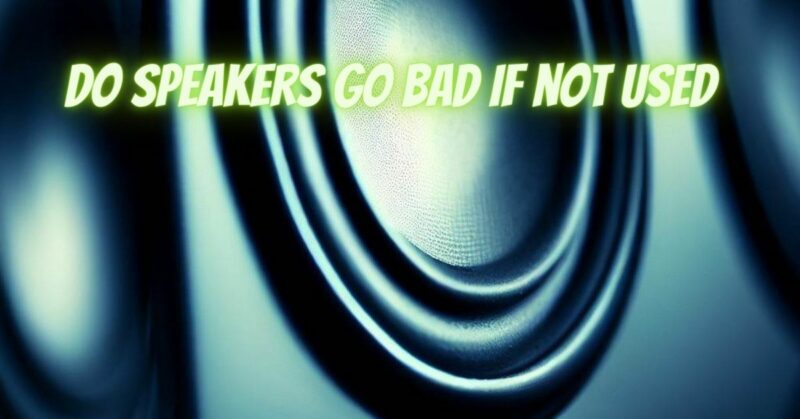Speakers, like many other mechanical and electronic devices, can undergo changes over time, even when not actively used. The impact of inactivity on speaker performance depends on various factors, including the quality of the speakers, the environment in which they are stored, and the duration of inactivity. In this article, we will explore the potential effects of not using speakers for prolonged periods and offer some tips to ensure their longevity and optimal performance.
- Surround Material Deterioration: One of the most common issues with unused speakers is the deterioration of the surround material, especially in traditional cone-type drivers. The surround is a flexible ring that connects the speaker cone to the speaker frame. Over time, if the speakers are not used, the surround material can become stiff, brittle, or even degrade, resulting in a loss of flexibility and potentially affecting the speaker’s performance.
- Voice Coil Misalignment: The voice coil is a critical component in speakers responsible for converting electrical signals into sound. If the speaker remains inactive for an extended period, the voice coil may become slightly misaligned due to gravitational effects or changes in the magnetic field. This misalignment can lead to changes in sound quality or produce distortion.
- Dust Accumulation: When speakers are not in use, they are more susceptible to dust and debris accumulation, especially if left uncovered or stored in dusty environments. Dust particles can settle on the speaker cones, grilles, and other components, potentially affecting sound clarity and overall performance.
- Spider Sagging: The spider is another component that helps center the voice coil within the speaker’s magnetic gap. If the speaker remains inactive for a very long time, the spider’s adhesives can weaken, leading to sagging or misalignment of the voice coil.
Tips to Preserve Speaker Performance:
To ensure that your speakers maintain their performance, even during periods of inactivity, consider the following tips:
- Regularly Exercise the Speakers: It’s a good practice to occasionally use your speakers at moderate volume levels, even if you don’t use them regularly. Playing music or audio content through the speakers helps keep the components active and can prevent issues like surround material deterioration.
- Store Speakers Properly: When not in use, store your speakers in a clean and dry environment, preferably covered or placed in protective cases. Keep them away from direct sunlight, extreme temperatures, and moisture, as these conditions can degrade the speaker’s materials and affect performance.
- Perform Maintenance: Regularly clean your speakers to remove dust and debris that may have accumulated during periods of inactivity. Use a soft, dry microfiber cloth or a feather duster for dusting and avoid using liquid cleaning agents directly on the speakers.
- Monitor Speaker Performance: When you start using speakers after a long period of inactivity, pay attention to any changes in sound quality or distortion. If you notice any significant issues, consider having the speakers inspected by a professional.
While speakers can experience some changes and degradation if not used for extended periods, proper storage and occasional usage can help mitigate these effects. Regular maintenance, monitoring of speaker performance, and creating a suitable storage environment are key factors in ensuring that your speakers maintain their optimal performance and provide you with enjoyable audio experiences for years to come.


